Search Results
Showing results 41 to 60 of 68
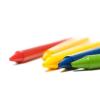
Spinning Your (Color) Wheels
Source Institutions
In this optics activity, learners use everyday materials to make a color wheel. When learners spin the wheel like a top, they will be surprised to see all the colors mixing together to appear white.
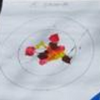
Moon's Long History: Impact Paintings
Source Institutions
In this activity, pairs of learners model how scientists use craters to determine the ages of lunar surfaces. One partner keeps time while the other creates a painting for the other to interpret.
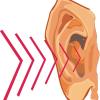
Good Vibrations
Source Institutions
In this activity, learners experiment with their voices and noisemakers to understand the connections between vibrations and the sounds created by those vibrations.
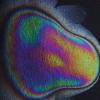
What is Nanotechnology?
Source Institutions
In this activity related to nanotechnology, learners observe some of the effects that result from creating a thin layer of material several nanometers thick.
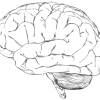
Train Your Brain
Source Institutions
In this activity, learners play a trick on their own brain to see if the brain can learn to ignore distracting input. Colors and words are used to play the visual trick, known as a Stroop Test.
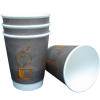
What Can You Make of It?
Source Institutions
In this activity (located on page 2 of PDF), learners explore alternative uses of a simple paper cup, dubbed a "mystery item." Learners act as detectives and explore the properties and functions of th
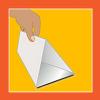
Kaleidoscope
Source Institutions
In this activity, learners investigate the reflective properties of light and mirrors as they make a kaleidoscope.
Pósteres Sobre el Espacio y Matemáticas
Source Institutions
Exponga estos pósteres en el salón o déjelos donde los chicos los puedan explorar. Los chicos buscan las respuestas en línea, en libros de consulta, y en calendarios y almanaques.
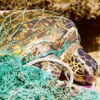
All Tangled Up
Source Institutions
In this activity on page 60, learners examine and simulate wildlife entanglement by experiencing what it might be like to be a marine animal trapped in debris.
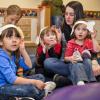
Horton Senses Something Small
Source Institutions
In this story time program, young learners listen to the Dr.
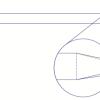
Drinking Straw Oboe
Source Institutions
In this quick activity (page 1 of the PDF under SciGirls Activity: Music and Sound), learners will construct an oboe-like instrument from a plastic drinking straw by cutting the end to split it into t
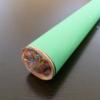
Kaleidoscope
Source Institutions
In this activity, learners build inexpensive kaleidoscopes using transparency paper and foil (instead of mirrors).
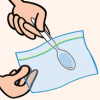
Glitter Slime
Source Institutions
In this activity on page 8 of the PDF, learners make a slimy substance very similar to mucus, and sprinkle it with glitter to imitate the way that allergens are trapped.
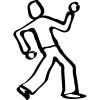
Dance Diagram
Source Institutions
Teams of learners use a series of stick figures made from pipe cleaners to model a dance routine. Then, they use this model to communicate to another learner who performs the dance routine.
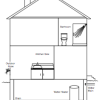
Be a Plumber
Source Institutions
In this activity (located on page 6 of the PDF), learners explore the ways people access water in their homes.
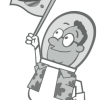
A Flag for Your Planet
Source Institutions
In this activity, learners design a flag for a chosen or assigned planet. The instructions include information about flags on Earth, and a list of flag references.
Enhanced Water Taste Test
Learners conduct a "blind" taste-test of several types of enhanced or fitness water drinking water that has commercially added substances like vitamins, sugars, or herbs.
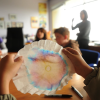
Radial Chromatography
Source Institutions
How many colors make black? Gather as many water soluble black markers as you can find.
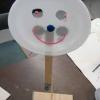
Bobbing Eyeballs
Source Institutions
In this activity, learners use simple materials and basic tools to construct a special toy to explore pendulums. As the head of the toy bobs one way, the eyeballs bob the other way.
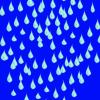
Go with the Flow
Source Institutions
Learners draw comic-style pictures to show the water cycle. From a starting picture, one learner draws what happens to the water in the next panel, then passes the comic strip to another learner.
